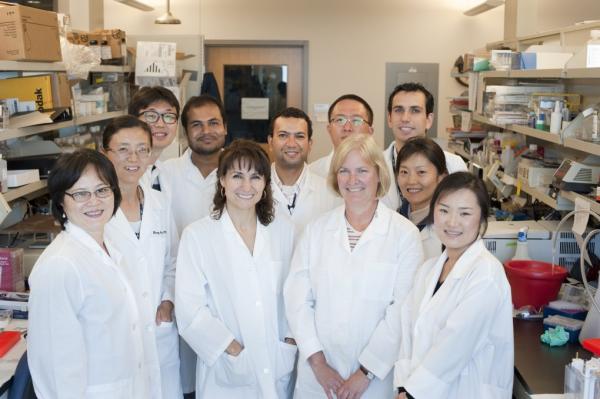It Is A Luxurious Time To Be A Biologist
Discovery was always fascinating to me. The curiosity of how a cell looks under the microscope and how a volcano erupts under the earth’s crust has led me to pursue a career in science. I still remember how excited I felt after my first experiment in a lab class where we had to touch an LB-agar plate with our fingers before and after we wash them to see what grows on it. I still hold on to the feeling of surprise when I saw mold growing because of my dirty fingers. Scientists may stress out about projects, writing grants, meeting deadlines, funding and career development, but in the end we should never forget that it is our curiosity of how the world works and how life is structured that drives our passion for our work.
However, in a world where money makes it go round, we need to be practical and realistic. Ever since I was a Ph.D. student at Baylor College of Medicine in Houston, Texas, I remember professors and administrators talking about what hard times the scientific community is going through financially. The future of academic research became a huge concern, and now it is more obvious what has happened during the last ten years or so. A tremendous boost in the economy of biomedical sciences, when the NIH budget was doubled during the late ‘90s and early 2000s, was later followed by a boost in the number of Ph.D. graduates in the next few years. Since then, funding has not followed the same trend everyone would have expected and wished for. The larger amount of biologists led to making the slices of the pie tiny, with a lot of brilliant scientists being left out. Job-hunting, for young investigators, has turned into a struggle, and pursuing a scientific career is not encouraged as much anymore.

This is a picture of my group. Keeping a positive attitude is a key to success, and the people around you can help.
But I prefer to think somewhat differently than that notion. A phrase during my first days in graduate school classes still echoes in my ears: “It is a luxurious time to be a biologist.” The advanced technology is providing tremendous tools for bench scientists in such a way that they only need to focus on true biological questions. Identifying the right question and project has now become more challenging than finding the means and technology to make a discovery. Also, the growing number of scientists and departments within academic institutions has made collaboration more feasible. Global communications assists big ideas and large projects in coming together from around the world with a speed and simplicity that nobody could have imagined before the Internet. Even the struggle for funding can be beneficial sometimes. Pressure makes new brilliant ideas emerge, the cost of technology is decreasing, and collaboration has become a necessity rather than just an opportunity. In addition, now more than ever before, biomedical research finds applications beyond academia, and more alternative career options have been revealed.
A society’s quality can be indicated by its ability to produce science and intellectuals. We should feel grateful we live in such a society. Funding is a struggle, but it might also be a challenge and a driving force for exceptional quality science. We did not choose this path because of the salary, but because we love what we do. And this may be the most important reason the scientific community still remains uncorrupted. All the young investigators who get discouraged and deal with uncertainty should do this: go back to your first emotions from your first observations, the first exciting results of an experiment, and remind yourselves why you are passionate about your work.
Related Blog Posts
This page was last updated on Wednesday, July 5, 2023
